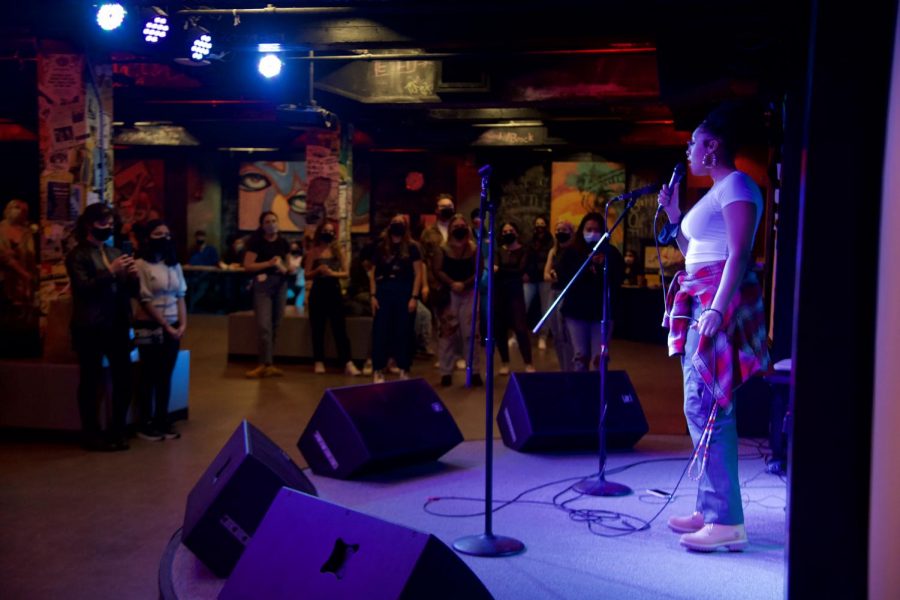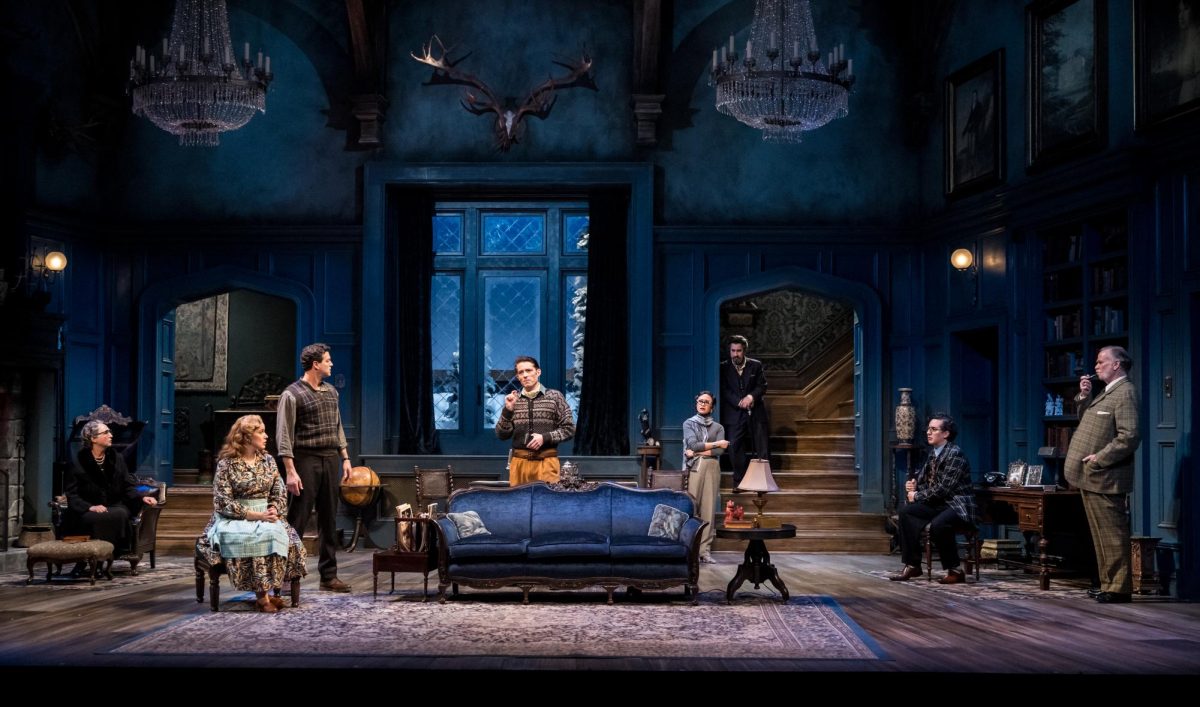Microphone in hand, 21-year-old musician Jada Lynn stood proudly in the spotlight. “Black and Indigenous, my being is resilient,” she sang to the crowd.
The Whole Music Club was filled with passionate voices and powerful words during the End Line 3 Concert on Nov. 5. The American Indian Student Cultural Center’s (AISCC) benefit concert featured a talented lineup of performers and raised awareness about the dangers posed by the Line 3 pipeline. It brought attention to the work Indigenous people are doing in the fight against its construction and raised funds to help support water protectors in northern Minnesota.
AISCC works to expose other students to Native culture, especially because the University rests on Dakota homelands.
“We emphasize that Native people were here before the University, and the University kind of pushed us out, so we don’t really have a space in higher education,” said Maggie Greenleaf, fourth-year student and events coordinator for AISCC. “We have that space for other Native students and Indigenous people to come and hang out, create community, have events and have that feeling of being connected to people that look like you.”
AISCC hosts monthly events, like Frybread Fridays, as well as annual events. Their annual Fall Round Dance is coming up on Saturday, Nov. 13 at the St. Paul Student Center. But Greenleaf noted that this benefit concert was special.
Enbridge, a Canadian pipeline company, recently completed the replacement of their Line 3 oil pipeline which stretches across Minnesota. In addition to violating Indigenous treaty rights, critics say the completion of the pipeline could further contribute to climate change, increase sex trafficking and risk oil spills that would contaminate essential water sources — including those in which Native people harvest wild rice, an important aspect of Indigenous culture.
This summer, large groups of water protectors gathered in northern Minnesota in opposition to the pipeline’s construction; physical resistance strategies used on the frontlines included actions like blocking roads and water protectors locking themselves to construction equipment. They were met with resistance from police which resulted in hundreds of arrests.
Greenleaf explained that planning for this concert began during the first few weeks of the semester after another board member suggested the idea.
“With all of the arrests that have happened this past summer with protestors, a majority of them being Native, we felt like it would be a good project to contribute money towards their causes,” Greenleaf said.
The concert’s proceeds will be put towards bail funds for arrested water protectors, as well as helping support Camp Migizi, an Indigenous-led, queer and anarchist camp in northern Minnesota standing for Indigenous rights and against the construction of the pipeline. The group is focused on disrupting the work on the frontlines before the pipeline project is complete.
“We will still be here in the cold, in the heat, through the mud and barbed wire, and we ask that you remember us, because the fight for clean water is never over,” they said in an Instagram statement.
Money raised will go towards purchasing winter supplies for the camp to help make them more comfortable during the cold months ahead.
According to Greenleaf, AISCC had multiple goals going into this event. “I think our main goal is bringing awareness to the moves that Native people are making to keep tribal sovereignty and treaty rights,” she said. “We also just want to have fun, meet more people and have exposure to the different student groups.”
AISCC partnered with Students for a Democratic Society (SDS), UMN Students for Climate Justice and 365 Green for this event, all of which had tables set up at the show and informational handouts for attendees.
Midori Van Alstine is a second-year student at the University studying biology, society and environment. As a member of SDS, Van Alstein worked with AISCC to help to organize the show.
“Environmental justice is justice for everybody,” Van Alstine said.
In addition to building awareness about Line 3, Van Alstine said they hoped the concert would reach a new crowd of people and encourage them to take action.
“It’s a good way to get people that usually aren’t that involved in activism to come out and actually help with the cause while having fun and learning more about what’s happening,” Van Alstine said
The concert itself brought a great turnout as more and more people filed into The Whole as time went on. Some attendees grabbed a seat in the back and others stood close to the stage, forming a semicircle fleet of Converse, Dr. Martens, flannels and graphic tees.
The setlist of talented performers and upcoming artists, like 21-year-old Lynn, commanded the room’s attention through powerful and intimate prose in musical form. Lynn is a singer, songwriter and producer based in Minneapolis. She said she tends to focus on making R&B music, but her goal is to be like Rihanna and have a song in every genre.
Upon taking the stage, Lynn played instrumental tracks from her iPhone, giving the spotlight to her smooth vocal runs and thoughtful songwriting. Over the course of her set, she captivated the audience with her impressive vocal range and bubbly, confident stage presence.
Lynn said that being a part of this event was important to her in terms of raising awareness, combating ignorance and sharing a healing space with the other artists.
“I’m Indigenous, and Line 3 is destroying our water source, going through a lot of our reservations and taking away our main source of food,” she explained.
She noted the importance of letting people know the pipeline is more disastrous to Native people than beneficial. “What are we gonna do when our main source of water is depleted?” she asked. “Is the money worth our health, our safety?”
AISCC was successful in raising awareness and money, totaling over $3,600 in donations. But Greenleaf also explained that the event highlighted their presence within the campus community.
“It’s just reminding people that we’re here and that we do exist on this campus,” she said. “If you’re gonna talk about Native issues and want to consult actual Native people who are similar to you, we’re here.”














